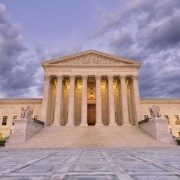There are many recent changes to foreclosure case law that effect consumers. in an effort to keep you informed of what you may see in your foreclosure defense case, I have listed the very case synopses here. Many of these case synopsis were done by Judge Cynthia Cox in the 19th Circuit. Judge Cox’s synopsis could not be improved upon so I posted hers. Pinellas , Pasco and Hillsborough counties are 2nd DCA and a link to the case is included. Contact us for your foreclosure defense today.
Voce v. Wachovia, Case No. 4D15-34 (4th DCA 8/26/15) Borrowers moved to vacate FJ due to the failure of the Bank to offer modification and claimed disclose settlement was extrinsic fraud per 1.540(b). For Florida Statute 1.540(b) fraud motion must be within one year and the motion was untimely at three years later! Additionally, the motion was without merit because it must prove borrowers were prevented from participating to allege extrinsic fraud and they had no rights nor were they the intended beneficiary or party to settlement between the State and Bank.
Deutsche v. Stone, Case No. 4D14-2514 (4th DCA 8/26/15) Court may not involuntarily dismiss a case before plaintiff rests its case.
Vercosa v. Fields, Case No. 4D14-4724 (4th DCA 8/26/15) When damages are unliquidated, a defaulting party is entitled to notice and an opportunity to be heard. When the notice is mailed to the wrong address or lists the wrong courtroom (or the location is later changed), the final judgment is void and should be vacated/set aside.
Fiorito v. Chase, Case No. 4D13-2813 (4th DCA 8/26/15) Reversed and dismissed for lack of standing. Copy of note attached contained no endorsements or allonges and after the dismissal of the lost note count in the complaint, the original note contained an undated blank endorsement, but no testimony was presented as to the date the endorsement was placed on note.
Nationstar v. Brown, Case No. 1D14-4381 (1st DCA 8/24/15) A subsequent and separate default creates a new and independent right to accelerate payment in a subsequent foreclosure action and it is irrelevant that acceleration was sought in an earlier foreclosure action or that dismissal with prejudice was granted and is not time barred under 95.11. See Singleton v. Greymar.
Fowler v. TD Bank, Case No. 5D14-4134 (5th DCA 8/21/15) Affidavit that rental properties never intended to be encumbered and conflict in street address and legal descriptions creates an ambiguity and question of material fact that should not have been decided on SJ.
BOA v. Enclave, Case No. 2D14-3643 (2d DCA 8/21/15) BOA sought enforcement of FJ of 718.116 safe harbor. Assn estopped from taking a position contrary to which it affirmatively took in the f/c proceeding –its answer of entitlement to only lesser of 6 mos or 1% was a waiver of any other claim.
Grand Cent v. Space Coast, Case No. 2D14-2740 (2d DCA 8/19/15) More than a year after FJ, Space Coast filed a motion to enforce FJ seeking entitlement to safe harbor for condo fees under 718.116(1)(b). Trial court lacked jurisdiction because assessments was neither litigated nor adjudicated and there was no reservation of jurisdiction to determine the assessments. Trial courts lose jurisdiction after expiration of rehearing or new trial or 1.540 unless reserved. “We would encourage courts to consider specific language reserving jurisdiction to address entitlement to and amount of any unpaid assessments.”
Bayview v. Hambleton, Case No. 1D14-1703 (1st DCA 8/19/15) Condo association foreclosure proceeding, to which Bank was not a party, does not extinguish a bank’s superior interest and Bank owned and held the Note and thus had standing.
Lamb v. Mortgage, Case No. 4D13-3125 (4th DCA 8/19/15) Aurora filed and Nationstar substituted as Plaintiff upon assignment of mortgage (note not assigned). Original note was lost and copy endorsed to Aurora. No testimony about standing provided; only that Nationstar acquired Aurora, but nothing about this Note. When seeking to enforce a note endorsed to another, standing is proven through assignment, proof of purchase of the debt or evidence of an effective transfer.
Donado v. Pennymac, Case No. 4D13-1383 (4th DCA 8/19/15) Complaint dismissed without prejudice as defective when complaint was filed as not verified as required. In 2010, it was Rule 1.110(b) but now Rule 1.115.
Cardona v. Nationstar, Case No. 4D14-1609 (4th DCA 8/19/15) FJ reversed when bank’s witness testified about business records which were not introduced into evidence. Without the business records, the employee had no personal knowledge.
Perez v. Deutsche, Case No. 4D13-4812 (4th DCA 8/19/15) Bank offered undated blank note and witness did not know when note was endorsed; PSA was insufficient to establish standing and there was no evidence of transfer prior to filing. FJ reversed lack of standing.
Bis v. US Bank, Case No. 4D13-3310 (4th DCA 8/19/15) Bank voluntarily dismissed foreclosure action and amount of the fee hearing not accompanied with transcript. Rule 1.420(d) is unambiguous as to costs, which are to be assessed upon voluntary dismissal.
Fed Home v. Beekman, Case No. 4D13-4086 (4th DCA 8/19/15) Borrower had not complied with trial modification payment plan and then tried to force bank into a modification at trial. Trial court erred by forcing a modification offer or imposed a new contract on the parties – it was outside the scope of the pleadings and was not tried by consent.
Citation Way Condo v. Wells Fargo, Case No. 4D14-2667 (4DCA 8/19/15) Distinguishable from Sienna Ridge requiring independent action for unpaid condo assessment because it was raised in the foreclosure action and FNMA and Wells had direct relationship as its servicer.
TD Bank v. Graubard, Case No. 5D14-1505 (5th DCA 8/14/15) A deficiency is a continuation of the foreclosure proceeding and no additional proof of debt is necessary. Bank only has to prove and introduce evidence that property’s FMV on date of sale was less than total amount of FJ. Court does not have to take judicial notice of orders it entered in the case.
Boumarate v. HSBC, Case No. 5D14-1379 (5th DCA 8/14/15) Bank has to prove more than mere possession for lost note; but that it was entitled to enforce note at the time of loss.
Tanner v. Bayview, Case No. 5D14-3746 (5th DCA 8/14/15) Third persons whose rights or interests are adversely affected have standing to contest a foreclosure action and Plaintiff to present its case at trial. Consent FJ thus improper and not binding on junior lienors.
Assil v. Aurora Loan, Case No. 4D14-2257 (4th DCA 8/12/15) Bank failed to prove standing as nonholder in possession by relying on a letter notifying of transfer of servicing rights; not a servicing agreement that proved Aurora had the right to enforce when it filed the action and had claimed Note was lost in first complaint, with 3 amendments of varying allegations.
Onewest v. Cummings, Case No. 2D14-2397 (2d DCA 8/12/15) Dismissal reversed, Bank had standing. A plaintiff who is not original lender may establish standing by submitting note with blank or special endorsement, assignment or affidavit proving status as holder at time the complaint was filed.
Balch v. Lasalle Bank, Case No. 4D14-2057 (4th DCA 8/4/15 on rehearing) Standing not proven through an assignment executed after complaint was filed and by MERS who was not even a party to the PSA and there was no evidence indicating when the indorsement was placed on the note.
Citi v. Turner, Case No. 1D14-1137 (1st DCA 8/4/15) The plain language of the mortgage unambiguously gave the bank a security interest in the entire property, the Court erred in concluding bank not entitled to foreclosure ½ interest. Contracts must be interpreted and enforced in accordance with their meaning and in rational manner.
Snowden v. Wells Fargo, Case No. 1D14-2529 (1st DCA 8/4/15) Without a transcript, appellate courts presume the trial court’s judgment was based on evidence adduced at the hearing.
Carol A. Lawson, Esq., 28870 U.S. Hwy 19 #300, Hodusa Towers, Clearwater, FL 33761
Phone: (727) 410-2705; email: calh@gate.net
Clearwater Bankruptcy Attorney, Clearwater Bankruptcy Lawyer, Clearwater Bankruptcy, Clearwater Estate Planning Attorney, Pinellas Estate Planning Attorney, Pinellas Probate Attorney #FileLocallyDontOverpay #ClearwaterBankruptcy #ClearwaterBankruptcyAttorney #ClearwaterEstatePlanning #ClearwaterProbate











